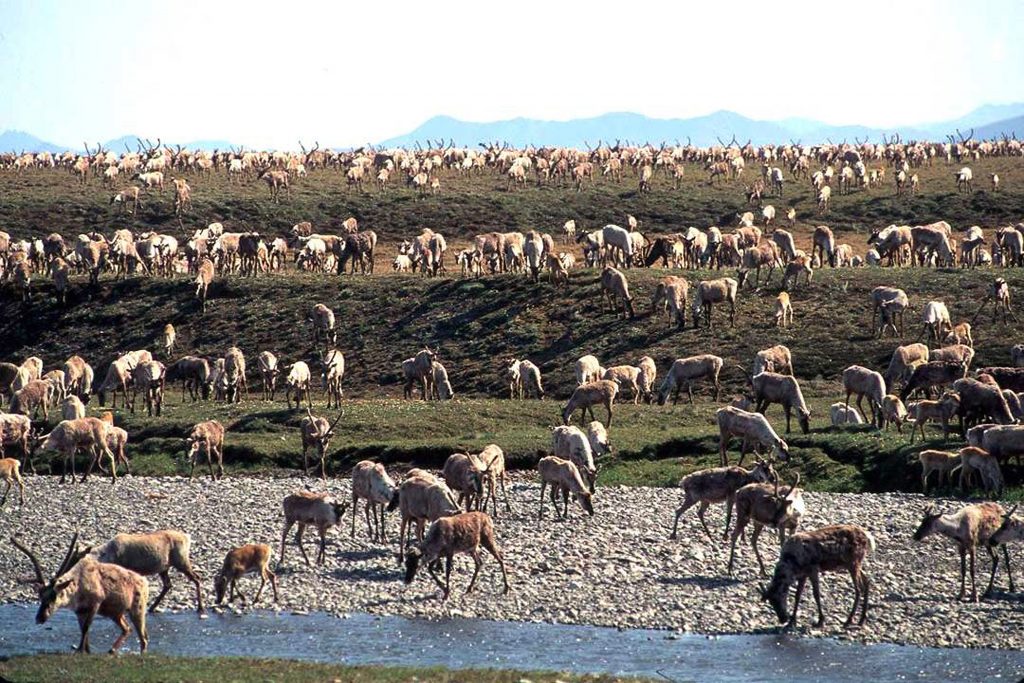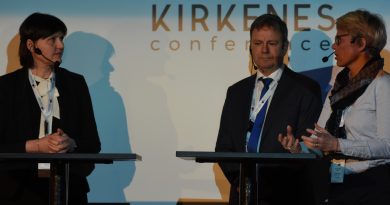Weak response to ANWR lease sale applauded by Yukon politicians, activists

The weak response to the initial sale of oil and gas leases in Alaska’s Arctic National Wildlife Refuge (ANWR) on Wednesday shows that activists’ campaigns are working, says a Yukon environmentalist.
Malkolm Boothroyd of Canadian Parks and Wilderness Society (CPAWS) Yukon says the lack of interest from big players is significant.
Big oil companies were revealed not to have entered any bids Wednesday as the U.S. Bureau of Land Management opened sealed envelopes containing bids for oil and gas rights for parts of the pristine arctic coastline.
The long-anticipated sale received 16 bids on 12 of the 22 tracts offered, and the state itself — through the Alaska Industrial Development and Export Authority — was the sole bidder on at least eight of the 12 tracts.
Boothroyd says it’s a sign that economics are changing when it comes to oil — and that activists’ campaigns to protect the refuge from development are working.
“All the big players turned their backs on this lease sale, and I think that speaks to the work that the Gwich’in and their allies have done in the last decades to stand up to oil drilling in the Arctic refuge,” he said.
“Companies knew they would face incredible opposition to drilling, they would struggle to find banks to loan them money,” he added.

As for the bids from the Alaska Industrial Development and Export Authority, Boothroyd suggests the state may have been trying to “save face.”
“Proponents of drilling in Alaska have been pushing this for decades and decades, and I think they just wanted to bid on these leases so that it wasn’t a total failure,” he said.
Dana Tizya-Tramm, chief of the Vuntut Gwitchin First Nation in Yukon, said Wednesday’s showing represents a “failure” for those who’ve pushed for drilling in ANWR, and a “success for Gwich’in.”
“Technically speaking, the Alaska state has spent money on this bidding process and therefore has not made any money on the leasing and the bidding process,” Tizya-Tramm said.
Yukon MP Larry Bagnell issued a written statement on Wednesday saying Canada continues to support protection of ANWR.
“While any oil lease sale in the refuge is concerning, I am pleased that today’s sale failed to attract the interest of any of the major oil and gas companies,” Bagnell said.
Federal Environment Minister Jonathan Wilkinson also issued a statement on Wednesday saying the lease sale “deepens my very serious concerns” about potential impacts on wildlife, in particular the Porcupine caribou herd.
“Prior to any leases being legally awarded, Canada has requested that additional consultations take place to assess and consider potential long-term effects on Porcupine caribou, as stipulated in the Canada-U.S. treaty for Porcupine caribou,” Wilkinson said.
Bids fall short of earlier estimates
The lease sale had been promoted by the Trump administration.
In 2017, the U.S. Congress authorized the sale of ANWR leases in a provision attached to the Tax Cuts and Jobs Act.
At the time, the Congressional Budget Office (CBO) estimated that total ANWR lease sales would generate $1.82 billion US in total revenue.
Numbers seen so far are nowhere near that range. Private bids totalled only about $2 million US of the $14 million US bid on Wednesday.
The state-owned Alaska Industrial Development and Export Authority has never lead an oil exploration project of this kind.
The only private companies who bid on Wednesday were two smaller players, Knik Arm Services LLC and Regenerate Alaska Inc.
Before opening sealed bids, Kate MacGregor, deputy secretary of Alaska’s Department of the Interior, expressed hope that Arctic oil production would “once again reinvigotrate the Alaska Pipeline and that well-paying jobs will bring economic strength for Kaktovik and for all Alaskans.”
Other leases could yet be open to bids.
Three court cases related to the process are still pending with the Gwich’in Steering Committee and environmental groups.
With files from Paul Andrew and Alaska Public Media
Related stories from around the North:
Canada: RBC latest bank that will not directly fund drilling projects in Alaskan Arctic refuge, CBC News
Finland: Miners hunting for metals to battery cars threaten Finland’s Sámi reindeer herders’ homeland, Yle News
Greenland: Greenland issues new exploration, prospecting licences to Anglo American, Eye on the Arctic
Norway: Minister downplays environmental impact of planned mine in Arctic Norway, The Independent Barents Observer
Sweden: The Arctic Railway – Building a future or destroying a culture?, Eye on the Arctic
United States: U.S. judge allows oil, gas lease sales in Alaska’s Arctic refuge, The Associated Press



